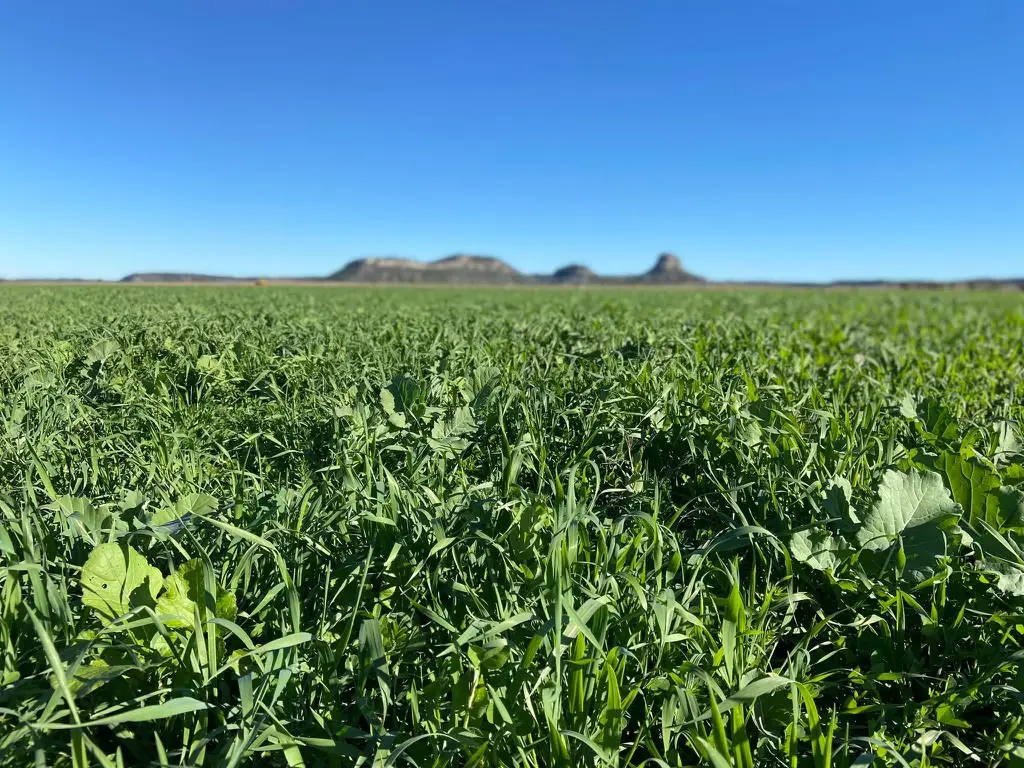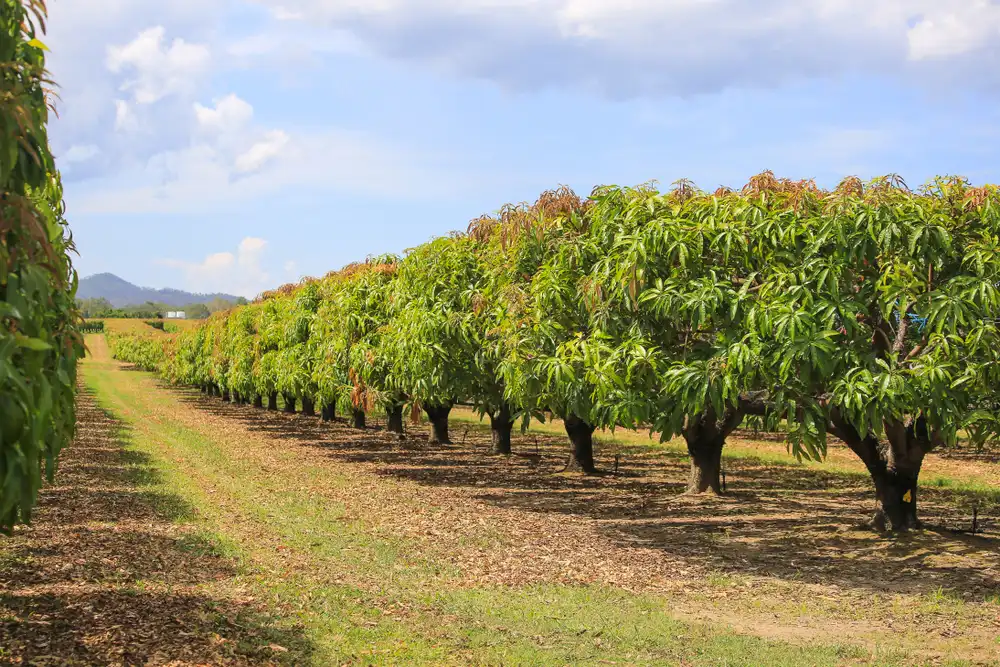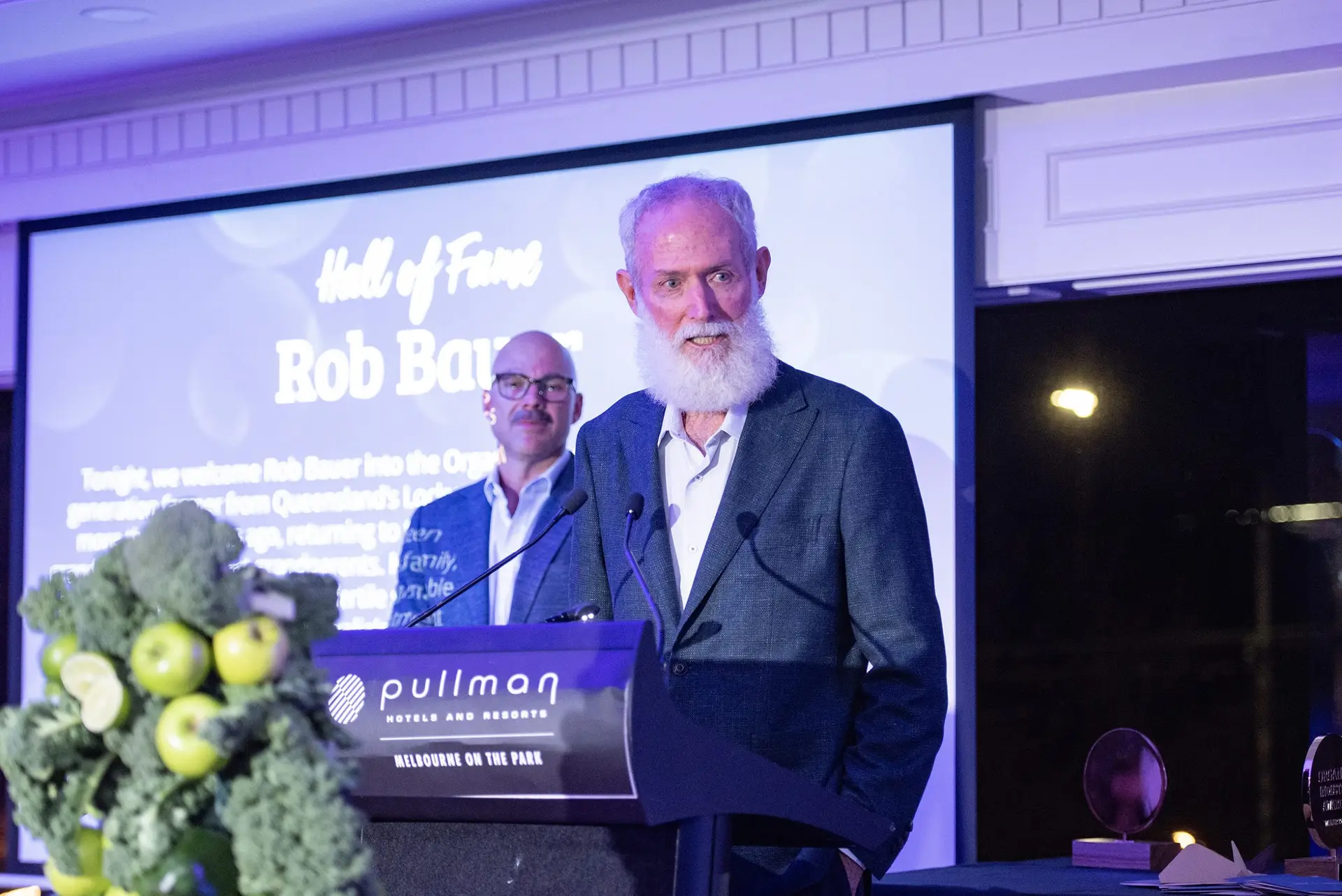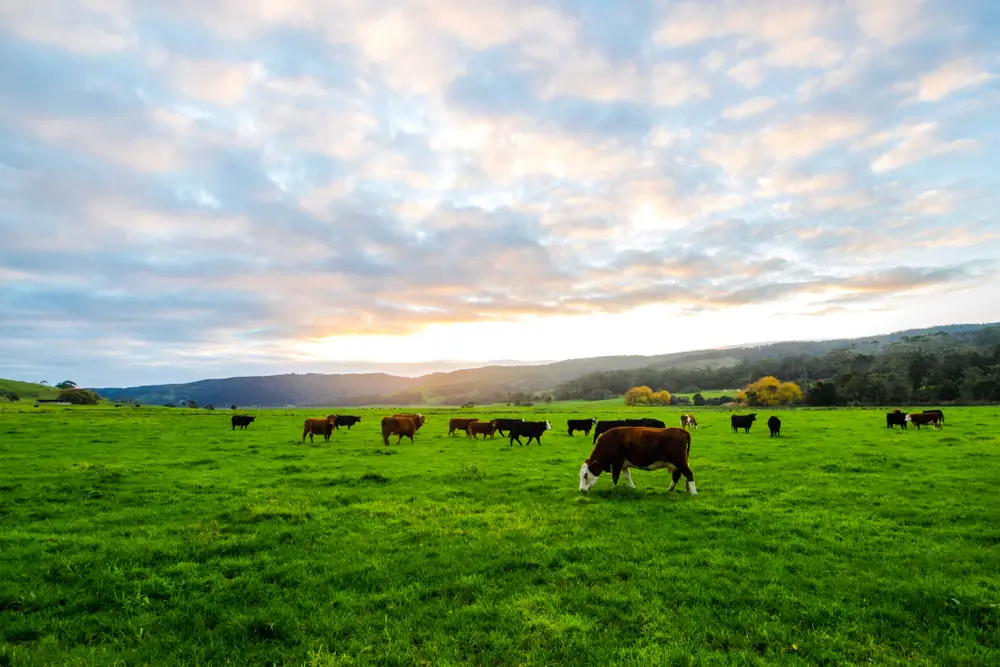Fifty Central Queensland producers have descended on the Marshall family’s “Nandowrie” property at Springsure to see its remarkable transition to certified organic beef production and learn the secret of effectively farming twice the area of land without buying a single extra hectare.
Hosted by Australian Organic Limited (AOL) and the University of Queensland, the July field day Proactively addressing soil constraints: Using multispecies crops to cover your bottom line shared some of the findings of the Federal Government’s Drought Resilient Soils project, which enlisted 20 farmers to trial treatments to rectify soil constraints, improve crop yield and enhance drought resilience.
Five years ago, fifth generation producer Matthew Marshall and his father Stephen made the bold decision to go “cold turkey” on synthetic fertilisers, replacing them completely with biological fertilisers to enhance productivity on their properties ‘Nandowrie’ and ‘The Pines’, totalling 5,725ha.
The Marshalls run Angus/Limousin cross breeders and cultivate organic dryland crops, as well as grow lucerne and fodder crops.
They achieved full organic certification and now produce their own biological fertiliser and incorporate a rotation of cover crops, finishing cattle under a paddock-assisted organic feeding program incorporating silage for drought proofing.
Matthew Marshall told the audience he and his father estimated a tenfold response in crops and pasture from using biofertiliser, and as a result built their own facility to store around 50,000L of home-made product which is applied at a rate of 50-150L per hectare.
“The advantage of bio fert is in the diversity of plant and microbial life that we’re seeing on the property, and we’re seen the benefits of putting a cover crop back in the ground annually or at least once every third year,” Mr Marshall said.
“We went organic because we could see the trend in our consumer-driven market was to eat cleaner and know where food comes from, and the benefit to our farms has been tenfold through zero pest and disease problems and improved nutrition.”
Cover crops are composed of legumes, grasses, brassicas, and broadleaves; each playing a critical role by enhancing soil structure and water absorption capacity.
Victorian guest speaker Grant Sims, owner/director from Down Under Covers and a former Coles Weekly Times Farmer of the Year, told the audience that healthy soils responded in the same way to bio fertilisers as the human gut biome to optimal foods.
Mr Sims said by stopping cultivation, encouraging fungal levels and diversity of root systems, and growing a protective cover for the soil, farmers could measure their land three-dimensionally – by length, width and depth.
“If you can increase rooting depth from 30cm to 60cm, and even better one metre, you can effectively double the area of soil you’re farming,” Mr Sims said.
Guest speaker Kym Kruse from CircleAG told the audience that, crucially, more organic matter provided more water infiltration in wet times and more water-holding capacity in dry times.
A one per cent increase in soil organic matter provides 144,000L of water holding capacity per hectare, he said, and when moisture and nutrition was optimised, the plant would be resilient and capable of defending itself against disease.
Mr Kruse described microbial diversity as the cornerstone of soil health and said that by mimicking what happened in the soil, biofertilisers could fast-track the benefits of balanced nutrition.
AOL Chief Executive Officer, Jackie Brian, paid tribute to the Marshall family for their commitment to boosting soil health and drought resilience through innovative organic techniques.
“We are very pleased to see such a good turnout of Central Queensland producers interested in finding an organic alternative to synthetic fertilisers, to build water-holding capacity and optimise weed control without herbicides,” Ms Brian said.
“By sharing their knowledge, the Marshall family and guest speakers are assisting farmers to get nutrition back into their ground more naturally whilst maintaining cropping yields and productivity, and these proactive practices will enhance their overall resilience.”
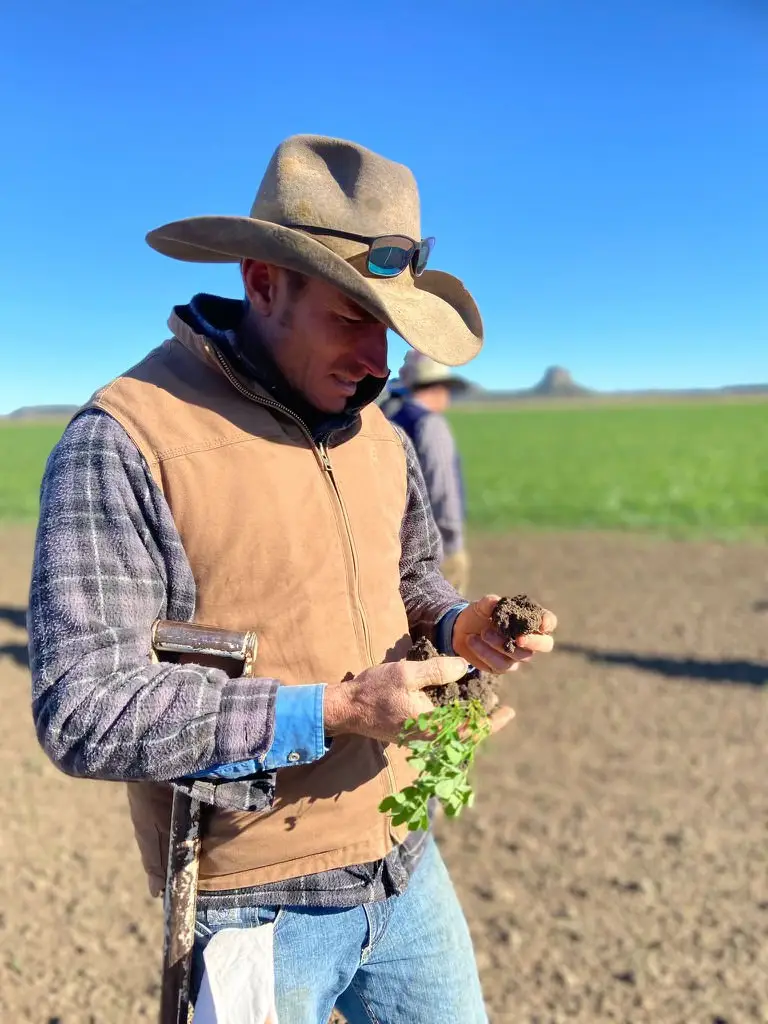
IMAGE ONE: The Marshall family farm at Springsure, Queensland.
IMAGE TWO: Matthew Marshall said he’s had a tenfold response in crops at his property in Central Queensland since adopting organic practices.
